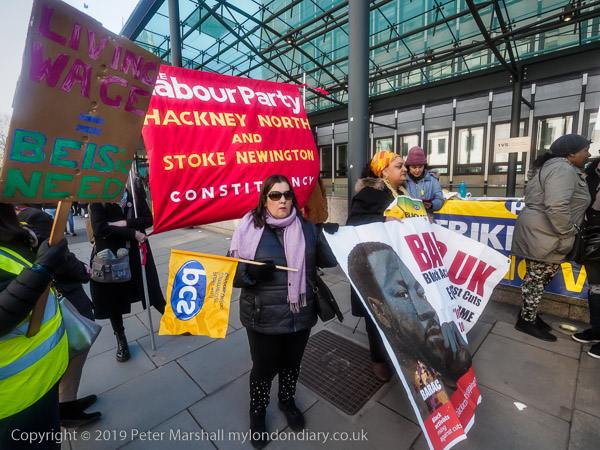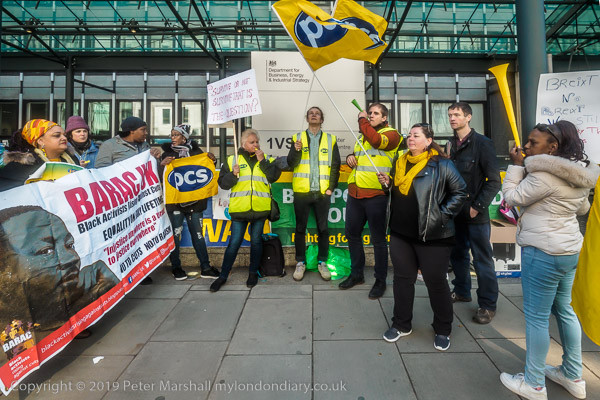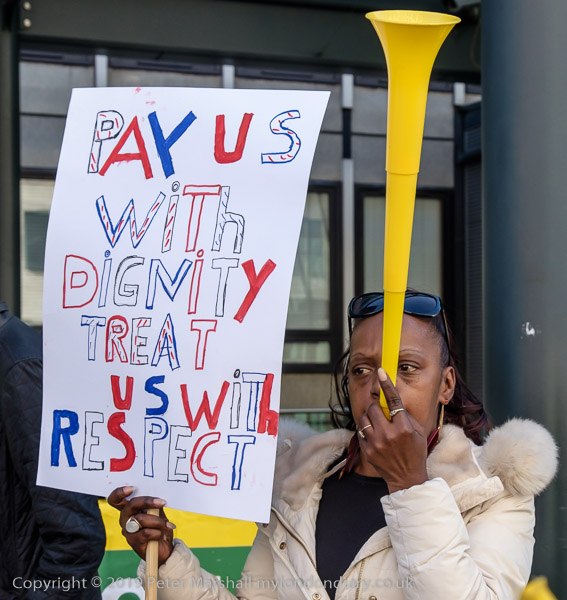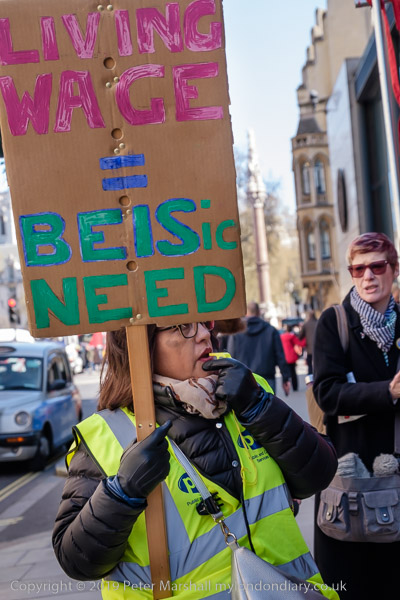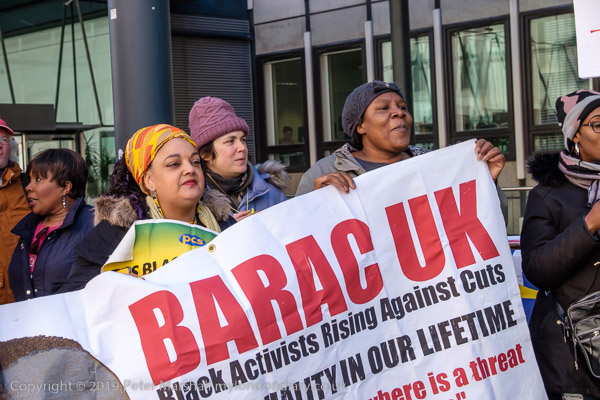Stratford, Shoreditch & Racist Immigration Laws: On Saturdy 27th June 2009 I took a few pictures from a high viewpoint arooss Stratford , then photographed graffiti in the streets of Shoreditch before going to a protest against the UK’s racist immigration laws a Communications House, close to the Old Street roundabout.
Olympic Update II – Stratford, London.
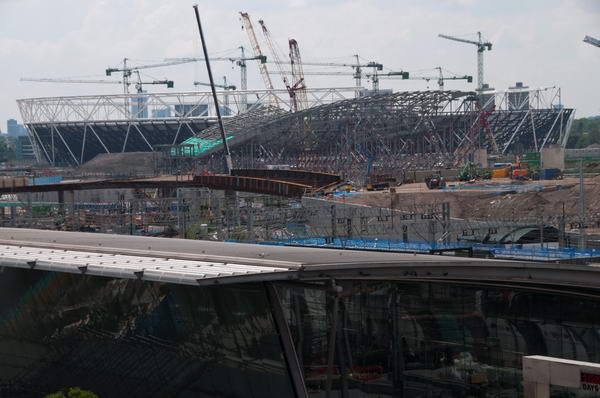
There is a little of a mystery for me over these pictures as I don’t state the location I took them from, simply state I was in Stratford for a meeting on Saturday and took the opportunity to take a few pictures of the Olympic site from a high viewpoint.
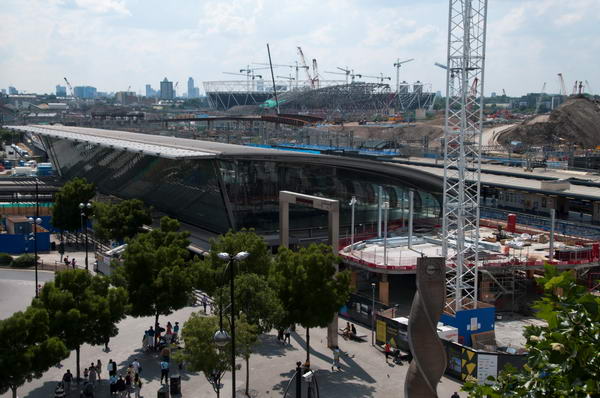
I no longer have my 2009 diaries and cannot remember any such meeting which from the views I think must have been on one of the upper floors on top of the shopping centre. I possibly made my way onto the roof area after the meeting.
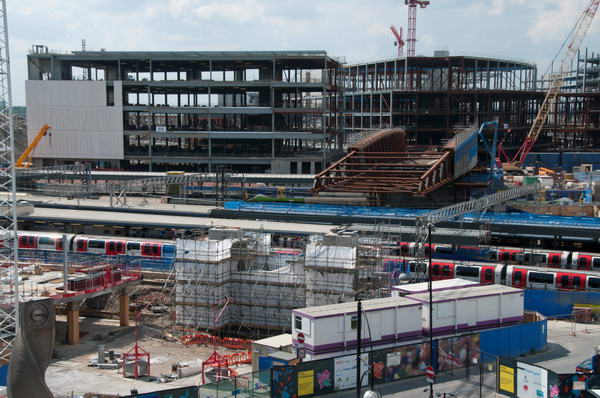
The lighting and weather were not at their best but they do show some of the buildings on the Olympic site as well as Westfield under construction and Stratford Station.
Shoreditch
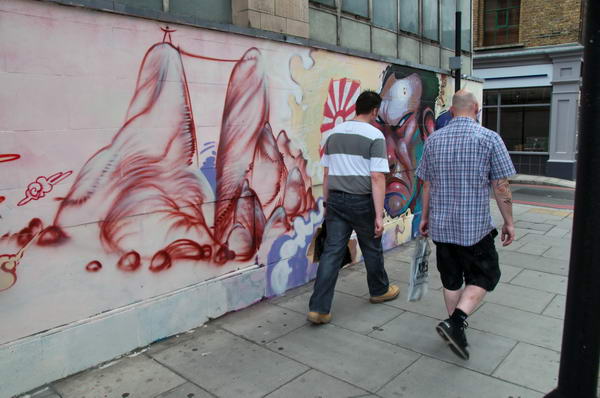
My train to Liverpool Street arrived in time to allow me to make a leisurely and rather indirect walk to Old Street for the protest there.

Back in the early 1980a, Shoreditch was a run-down area of warehouses and small workshops which were closing down and being taken over by artists for cheap studios, including some who were forced to move out of Butler’s Wharf which in the 70’s had become the largest artists’ colony in England. Over half moved out following the firein late 1979, but the 60 remaining were all given notice to quit in January 1980. Some formed a new community in the Chisenhale centre in Tower Hamlets, but quite a few found cheap premises in Shoreditch.

The artists preserved much of the area’s properties and made it a much more attractive place to live. For most of them this meant the rents grew rapidly to far more than they could afford and they had to move to more outlying areas. But Shoreditch had become a trendy place with clubs and nightlife and the new graffiti – much inspired by New York street art began to cover almost every available wall.

Support Migrants – Fight Racist Immigration Laws – Old St
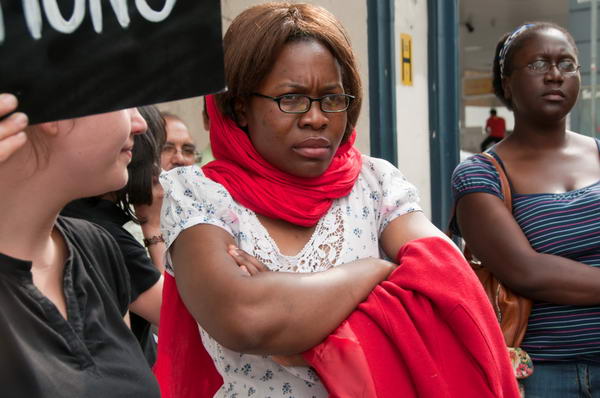
The Campaign Against Immigration Controls had organised the protest outside the Immigration Reporting Centre Communications House where many refugees are processed before they were taken to detention centres and deportation.
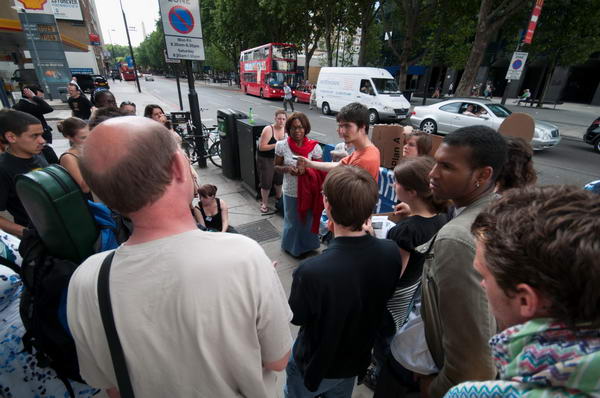
After the SOAS management and employers ISS had colluded with the Home Office over a dawn raid on their cleaning workers on 12 June 2009 in reprisal for their successful campaign for a living wage and trade union recognition, it was here that the SOAS 9 were brought before their deportation.
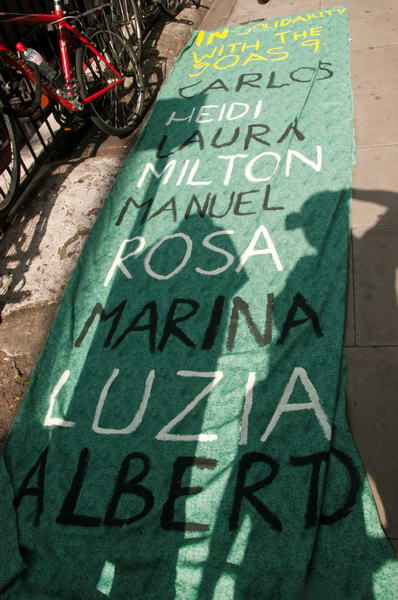
The first speaker at the protest was Laureine Tcuapo who had fled to Britain to escape repeated rape and abuse from a relative in the Cameroon police force. On Friday 12 June at 7am, immigration police kicked down the door of her Newcastle house and took her and her two young children forcibly to Yarl’s Wood Immigration Prison, intending to deport here to Cameroon. Action by Tyneside Community Action for Refugees and No Borders North East managed to prevent her deportation and get her release from Yarls Wood on 25th June but she is still under threat of deportation.
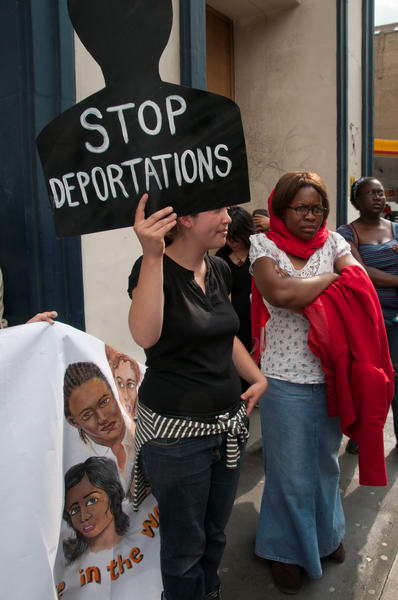
The protest also supported the continuing hunger strikers in Yarls Wood over the inhumane conditions there. In a press release from TCAR Tcuapo stated “Families were separated; people were being beaten up by guards. It just felt to all the asylum seekers that we were less than animals… I still think about my time in Yarlswood. It was very traumatising. I can’t even imagine how things are at the moment for people inside. They’re counting on us because inside, they have no rights.“
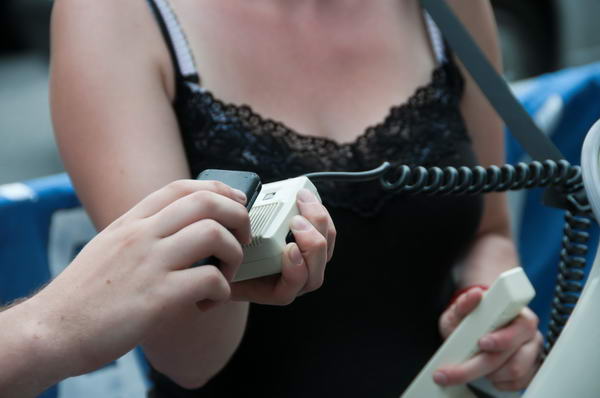
We also heard directly from some women in Yarls Wood who were able to use mobile phones to speak at the protest. Much of what is still happening at places such as Yarls Wood has been condemned by official inspections and is clearly against the laws of this country as well as EU Human Rights legislation and attention needs to be drawn to it. Our treatment of migrants, especially asylum seekers offends against justice and humanity.
More at Support Migrants – Fight Racist Laws
Flickr – Facebook – My London Diary – Hull Photos – Lea Valley – Paris
London’s Industrial Heritage – London Photos
All photographs on this page are copyright © Peter Marshall.
Contact me to buy prints or licence to reproduce.
